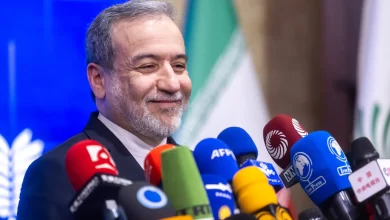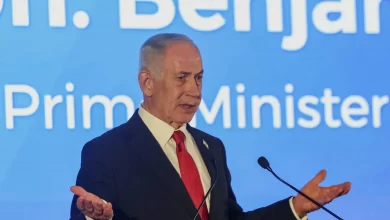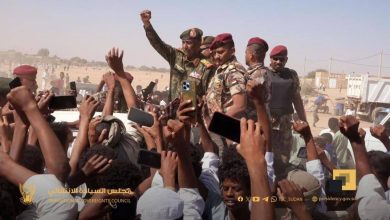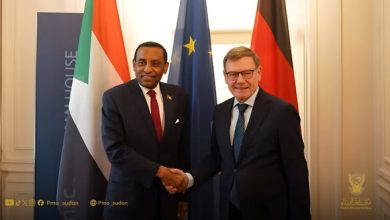InternationalNews
Lavrov: Moscow is in contact with Damascus and will not leave the region
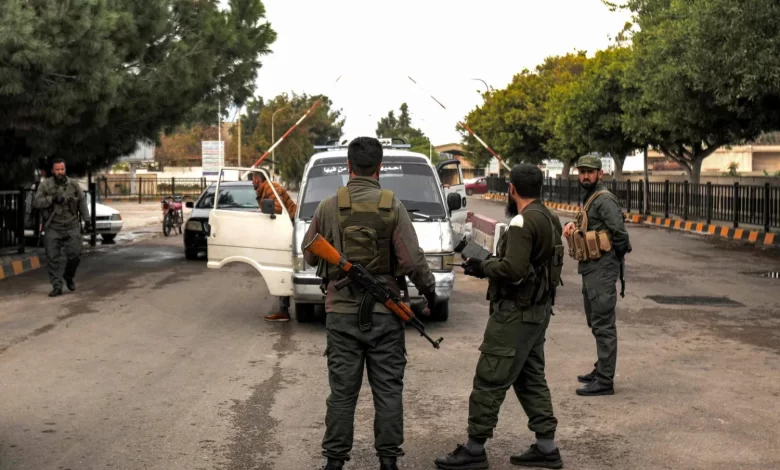
Russian Foreign Minister Sergey Lavrov confirmed that his country is ready to contribute to advancing the political process in Syria, stating that Moscow “has not and will not withdraw from the Middle East,” emphasizing continued communication with the new Syrian leadership.
During a press conference in Moscow on Tuesday, the Russian minister held the previous Syrian regime responsible for the deteriorating situation in the country. He said that “the previous Syrian regime’s unwillingness to change anything and share power with the opposition was one of the main reasons for its collapse.”
He explained that “over the past ten years, after Syrian President Bashar al-Assad requested Russia’s intervention and the launch of the Astana format, and despite the help from Arab countries, the authorities in Damascus showed procrastination in the political process and a desire to maintain the status quo.”
Lavrov added that Moscow “repeatedly urged the Syrian government to support the work of the constitutional committee created in Sochi during the Syrian-Syrian conference in 2018 and to push efforts towards drafting a constitution.”
According to Lavrov, the “Syrian government showed no readiness to share power with the opposition, not referring to the terrorist opposition,” adding that this procrastination was accompanied by problems resulting from economic sanctions that strangled the Syrian economy, while the eastern part of Syria, rich in oil, was occupied by the United States. The resources extracted there were used to support separatism in northeastern Syria.
Lavrov revealed part of the discussions Moscow had with the Kurdish side, saying that Russia “talked to the Kurds about the need for a central authority in Syria,” but they said that the United States would help them establish their government, to which Russia responded that Turkey and Iran would not allow the creation of a state for them. He stressed that Russia’s position focused on ensuring Kurdish rights within the constitutional framework of Syria, Iraq, Iran, and Turkey.
Lavrov expressed his belief that ignoring the discussions in Damascus (Bashar al-Assad) under previous authorities “led to the reforms discussed by the United Nations, the Moscow platform, the Cairo platform, and the opposition in Istanbul, as well as the communications between these parties, reaching a dead end and a vacuum that resulted in this explosion.”
He criticized conclusions suggesting that “Russia’s withdrawal from Syria means leaving its positions in the Middle East,” saying that Russia “has not and will not leave the region.” Without directly addressing the issue of Russian military bases in Syria, Lavrov said that “our embassy did not leave Damascus, and we maintain constant communication with the authorities there.”
He affirmed that Moscow “wants to be useful in the current situation, in terms of facilitating an inclusive dialogue involving all national, political, and sectarian forces, as well as all external parties concerned.”
Lavrov mentioned that his contacts with Turkey, the Gulf States, and the results of recent meetings on the Syrian settlement involving Arab countries, Turkey, and some Western countries, indicate that “everyone agrees that this process must involve Russia and Iran, if there is a genuine desire to achieve sustainable and tangible results, and not just settling scores among those competing for Syrian territory.”
Damascus… Moscow’s Priorities
For his part, Russian Deputy Foreign Minister and President Putin’s Special Envoy to the Middle East and Africa, Mikhail Bogdanov, stated that Russia is closely following developments in Syria and views its relationship with Damascus as “a priority in its foreign policy.” He emphasized that “the partnership and cooperation between the two peoples and countries has spanned many decades, even going back deep into ancient history.”
He added that Soviet Russia, and later the Russian Federation, had supported Syria in achieving sovereignty and independence, always ensuring, at different stages, the principle of Syria’s territorial unity and sovereignty, and building equal relations based on common interests.
According to him, “the relationship between the Russian Federation and Syria is now entering a new qualitative phase, and both sides should build on the deep legacy of friendship between the Russian and Syrian peoples to preserve the gains and achievements and move forward in creating new grounds for constructive cooperation.”
He noted that Russian diplomacy is pleased with “the positive statements from the new Syrian administration towards Russia, and the commitment to strategic relations between our countries.” He affirmed that Moscow sees the positive stances as “a strong foundation for moving forward.”
Reports on Tuesday indicated that Bogdanov is expected to lead a Russian delegation to Damascus soon, but a Russian diplomatic source informed the “Middle East” that the date for this visit has not yet been set. The visit seems to have been postponed. If the visit is scheduled, Bogdanov would be the first Russian official to visit the Syrian capital since the fall of Assad’s regime.
Syrian Restrictions
Meanwhile, matching reports from Russian and Western media have confirmed that the process of evacuating Russian weapons and equipment from Syria is facing difficulties due to restrictions imposed by the Syrian authorities on the movement of Russian ships in its territorial waters.
According to data published by the English version of RT’s website, the Russian ship “Sparta 2,” which was designated for transporting Russian equipment and weapons, was denied entry to the port of Tartus, where Russia’s only foreign naval base is located.
Analysts from “OSINT” and open shipping monitoring services, along with reports from Russian military bloggers, confirmed that the ship, which departed from Baltiysk (Kaliningrad region in Russia) on December 11, has been sailing off the Syrian coast since January 5 without permission to enter the port.
